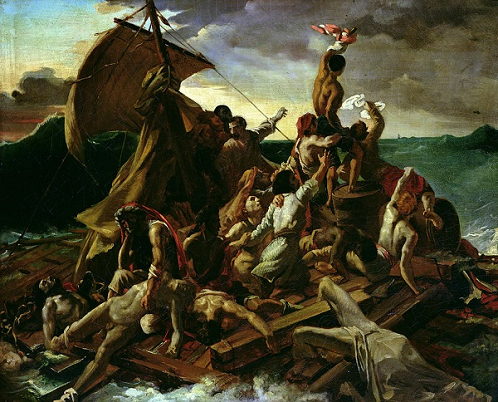[ by Charles Cameron — a scary thought for a poet, given that “The lunatic, the lover, and the poet / are of imagination all compact” ]
.
Considering the matter of altered states of consciousness as they relate to terrorism, I’m reminded of one of Shankara’s aphorisms:
Who is the greatest hero? He who is not terror-stricken by the arrows which shoot from the eyes of a beautiful girl.
**
I was just reading The American Women of ISIS: Who they are, why they’re joining, and what life is like once they get there:
Shannon Conley met a guy online. She was 19, a normal Colorado teen with glasses and a big, toothy smile. He was 32.
One day in early 2014, Conley nervously told her father that she had a new boyfriend. She wanted her dad to meet him, so she set up a Skype call on her laptop. During the chat, the couple asked for his blessing to marry. They also told him that Conley would be moving to Syria, where they would wed and start their lives together.
Their lives, they told him, would be dedicated to ISIS.
Conley had recently converted to Islam after researching the religion online, and felt strongly about righting the global wrongs against Muslims. Then, adopting an extremist stance, she decided she wanted to lend her skills as a certified nurse’s aid to ISIS—also called the Islamic State, and known the world over as the vicious terrorist group responsible for brutally murdering countless victims and inciting new levels of global fear. They, she thought, were the way to do it.
It was then that my question struck me: is anyone studying romance, specifically, as a gateway drug for violent extremism?
**
And the converse? How about romance as a cure?
Bruce Hoffman told us more than a decade ago in All you need is love: How the terrorists stopped terrorism, romance can be the cure…
Black September was, suddenly, not a deniable asset but a potential liability. Thus, according to my host, Arafat ordered Abu Iyad “to turn Black September off.” My host, who was one of Abu Iyad’s most trusted deputies, was charged with devising a solution. For months both men thought of various ways to solve the Black September problem, discussing and debating what they could possibly do, short of killing all these young men, to stop them from committing further acts of terror.
Finally they hit upon an idea. Why not simply marry them off? In other words, why not find a way to give these men—the most dedicated, competent, and implacable fighters in the entire PLO—a reason to live rather than to die? Having failed to come up with any viable alternatives, the two men put their plan in motion.
They traveled to Palestinian refugee camps, to PLO offices and associated organizations, and to the capitals of all Middle Eastern countries with large Palestinian communities. Systematically identifying the most attractive young Palestinian women they could find, they put before these women what they hoped would be an irresistible proposition: Your fatherland needs you. Will you accept a critical mission of the utmost importance to the Palestinian people? Will you come to Beirut, for a reason to be disclosed upon your arrival, but one decreed by no higher authority than Chairman Arafat himself? How could a true patriot refuse?
So approximately a hundred of these beautiful young women were brought to Beirut. There, in a sort of PLO version of a college mixer, boy met girl, boy fell in love with girl, boy would, it was hoped, marry girl. There was an additional incentive, designed to facilitate not just amorous connections but long-lasting relationships. The hundred or so Black Septemberists were told that if they married these women, they would be paid $3,000; given an apartment in Beirut with a gas stove, a refrigerator, and a television; and employed by the PLO in some nonviolent capacity. Any of these couples that had a baby within a year would be rewarded with an additional $5,000.
Both Abu Iyad and the future general worried that their scheme would never work. But, as the general recounted, without exception the Black Septemberists fell in love, got married, settled down, and in most cases started a family.
If so, would that be a sort of variant on the homeopathic formula Similia similibus curantur?
**
Shakespeare — who coined the phrase “The lunatic, the lover, and the poet / are of imagination all compact” which I used in my subtitle — died 400 years ago today.



